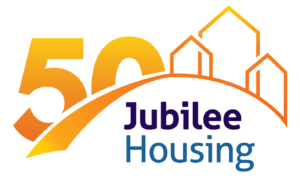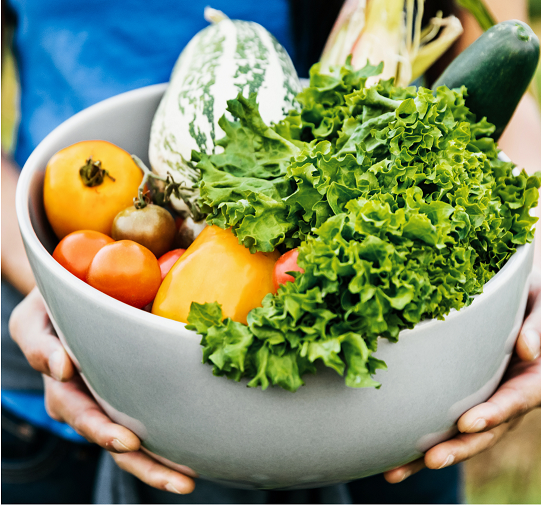According to the Capital Area Food Bank’s 2024 Hunger Report, 38% of DC residents are facing food insecurity, which means: one or more members of a household had to forego meals at some point in the year and/or people had to reduce the quality, variety or desirability of their diets because of affordability.
This discrepancy varies greatly across demographics. Over half of Black and Latine households surveyed in the DC metro region reported being food insecure, compared to 17% of white respondents. And 40% of food insecure households have children.
The findings also state that 68% of households earning $56,000 or less reported food insecurity. 61% of Jubilee Housing residents earn around $46,410 per year or 30% of the Area Median Income (AMI).
The report’s main two takeaways are:
- Food insecurity disproportionately impacts racialized people, families with children, and those with low incomes.
- Food insecurity in the region continues to worsen due to low wages, high rates of inflation, and the rollback of government assistance launched at the outset of the COVID-19 pandemic. Most food insecure residents experience two or more of these detriments at once.
How Will Justice Housing® Help with Food Insecurity in Ward 1?
Especially as gentrification has displaced long-time DC residents—predominantly Black and Latine—the overlaps between food insecurity and housing insecurity are significant. Per CAFB’s report, nearly half of all respondents identified higher than usual prices for housing as a major impact on their budget in 2024.
Jubilee Housing’s mission is to reduce these barriers to thriving. In addition to providing high quality, deeply affordable homes to those with the lowest incomes, our Justice Housing® model emphasizes the importance of wraparound services that support the whole individual in the heart of Ward 1.
Among these services is an expansion of Jubilee’s Reentry Housing Initiative, which has operated in Adams Morgan since 2011. The project will create 70 units of deeply affordable housing in Adams Morgan and will be home to an innovative new venture called Jubilee Farms—a basement and rooftop aquaponics farm with an on-site communal kitchen.
Through this urban farm, not only will we offer job training for returning citizens, it will also localize food production and produce an estimated 13,000 plants per month, year-round, to bolster food security for families in the Jubilee community.
Food insecurity is a multi-faceted problem that will take structural change to fully address. For community members in Ward 1, Jubilee Housing is trying to model what that change can look like.
If you are interested in finding out more about Jubilee Farms, contact Tim Tutt at ttutt@jubileehousing.org.

